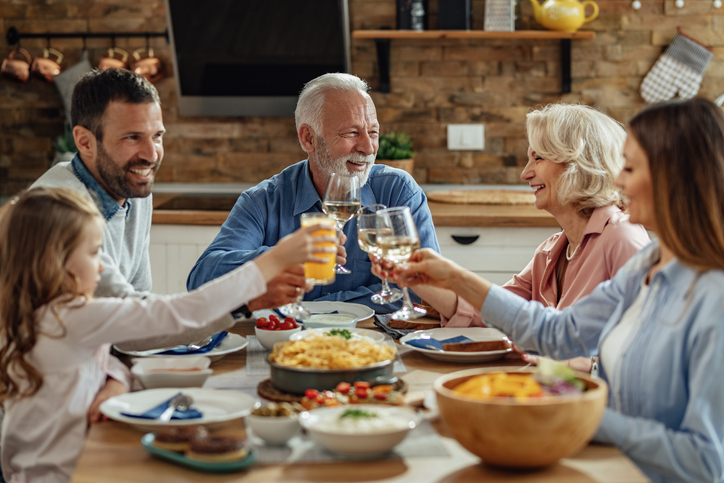Year Endings and Beginnings: Time to Reflect on our Losses
I have a Christmas Eve tradition of sharing a Facebook post, reflecting on the year (including my work as a dementia care trainer/consultant) and remembering those who will be absent from the table during the festive season, following bereavement.
I see this through the prism of celebrating lives lost. However, as I age, the list of names seems to grow – particularly those whose dementia journey has ended.
We are all different, so loss can feel like an intensely unique experience.
The Loss Spectrum
Carers of people with dementia (relatives/friends/significant others) experience a kaleidoscope of losses:
- initial diagnosis
- progression of their loved one’s illness, sometimes perceived as that person ‘disappearing’ or ‘no longer the Mum I remember’
- transition into residential care – one daughter told me “This was the worst day of my life”
- ‘she/he no longer recognises me as their partner/spouse/child etc.’ – perhaps, the most painful of experiences
- their loved one’s death
Indeed, over many years of working with carers of people with dementia, I’ve heard the expressions – “it’s like the longest bereavement” or “it’s a constant grieving process” – countless times.
Examples of loss can feel profoundly personal and unique for individual carers.
Patience’s journey began with supporting her husband through his acute anxiety during his forties, a later diagnosis of Parkinson’s Disease, then Parkinson’s-related Dementia and his recent death. Her story is a long one with many different losses and stresses along the way.
In the Rainbow Memory Café for older LGBT+ people who have dementia and their carers, Christopher, recently shared how he is still coming to terms with the death of his husband with whom he had lived for 40-plus years. Unlike many others, he’d felt supported by family and friends, yet the sense of loss remains overwhelming: “immediately after Joe died, all the professionals went.” It is not uncommon for relatives to describe this sudden shift of a busy home with lots of visitors to so much more silence and hours of time in the day to fill.
Meanwhile, Kate has been experiencing the anguish of her mother Jenny moving into residential care, trying to ensure she has prunes for breakfast, as she knows Jenny best and that this is important to her.
Many families have to navigate developing positive relationship with care staff and want to make sure their relative has what they need, but are worried about being labelled as difficult or interfering.
Unique or Universal?
It is often those ‘simple things’ – laying a second place at the table and then realising that our loved one is no longer there or feeling vulnerable and in need of a loved one’s holding hand or hug.
Such moments of personal grief and emotional pain, I’d suggest, are actually universal feelings when dealing with loss, including bereavement.
Loss and bereavement remain taboo topics for discussion, despite being a certainty of life. Their mention simply reminds of our own mortality and difficult feelings. The emotional pain of bereavement is not something we ‘get over.’ Rather, it is a reality of life that we can only hope to adjust and adapt to.
Nevertheless, as light follows darkness and spring follows winter, we can still remember and celebrate lives. My mother and father-in-law both died in 2020. For Christmas 2022, on behalf of the family, I donated to have 5 trees planted in their memory. Hopefully, a symbol that whilst they are no longer ‘at our table’ our love for them remains.

Associate Trainer
MCM

